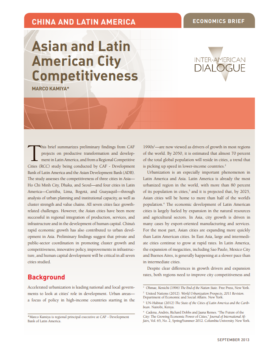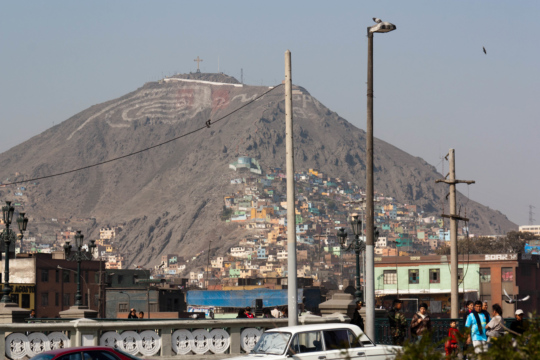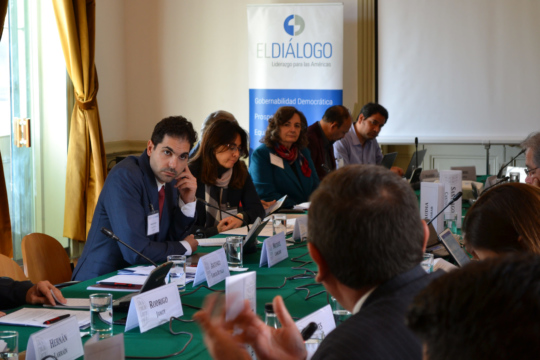“Lima is a problematic city, but it has its charm. Its charm is in being problematic,” quipped Luis Castañeda Lossio, the city’s mayor and a front-runner for Peru’s April 2011 presidential elections. Castañeda drew attention to the lack of resources and social inequity that plague Lima, highlighting infrastructure, quality of life, and health as the cornerstones of his mandate.
Boasting of two successful terms as the mayor of a diverse metropolitan city, Castañeda outlined his ambitious public works program and health care model during a discussion at the Inter-American Dialogue on May 11.
Castañeda believes that the multicultural, pluralistic identity of Lima makes it a “summary,” or snapshot, of Peru. And like the country as a whole, Lima remains plagued by great inequalities, a topic Castañeda discussed at length. He pointed to the two million citizens living in poverty on the hillsides surrounding Lima as an example of how much has yet to be achieved, but challenged the “that’s how it is, that’s how it will be always be” outlook that many limeños have adopted after years of stalled progress.
As mayor of Lima, Castañeda said he works to “plant the seeds of solidarity” and pursues an agenda centered on “social inclusion.” Given the scarcity of resources and the need to disperse benefits among nine million people, Castañeda says he has relied on creative designs for Lima’s social initiatives. Solidarity Hospitals, one of the mayor’s landmark efforts, is a joint public-private venture geared toward increasing access to, and quality of, health services. Under this model, doctors are the private owners of all the medical equipment and facilities, an arrangement that Castañeda argues has optimized effective usage and quality care.
Castañeda fielded an array of questions from participants, many probing how the mayor hoped to translate his experience in Lima to a national scale as a presidential candidate.
Castañeda spoke of the need for more centralization in Peru, as well as his hope that separate ethnic and regional groups could be pushed to create a stronger shared national identity. According to Castañeda, this type of cohesion marks the first step in ensuring that development goals be applied universally.
On the issue of drug trafficking, Castañeda pointed to the need for increased focus on the demand-side causes of the drug trade, explaining that the burden should fall not only on supplier countries to curtail production, but also on consumer countries to reduce demand.
Above all, Castañeda stressed that for policies to be effective in meeting the demands of constituents, contact with the people has to be a constant part of public office. Above all, he said, government policies must be followed by measurable results.


